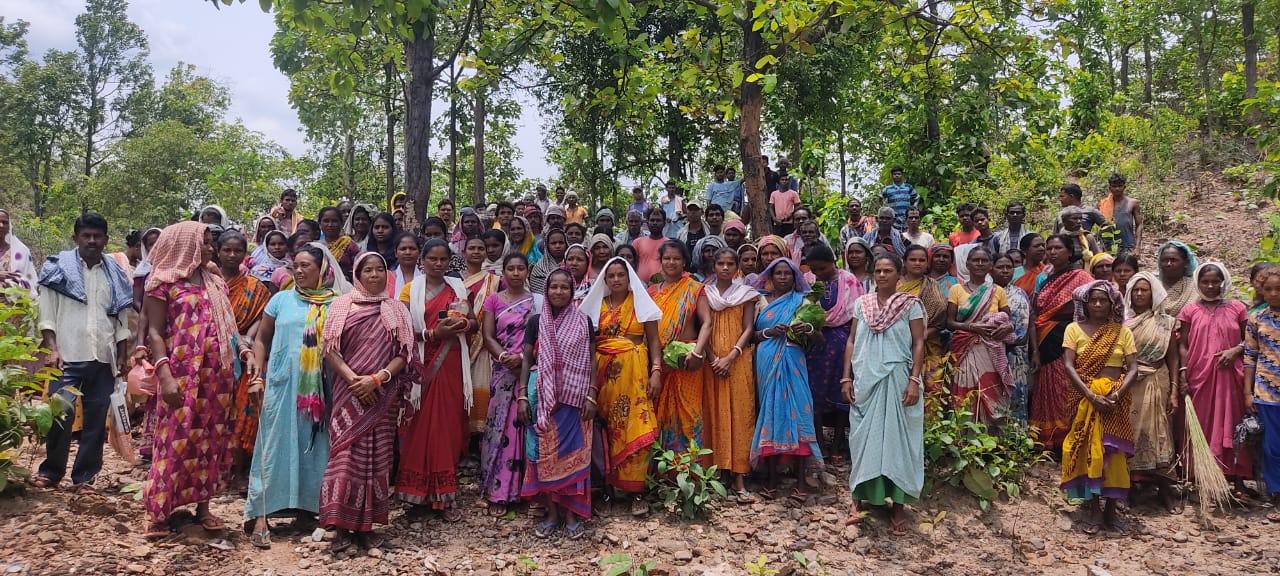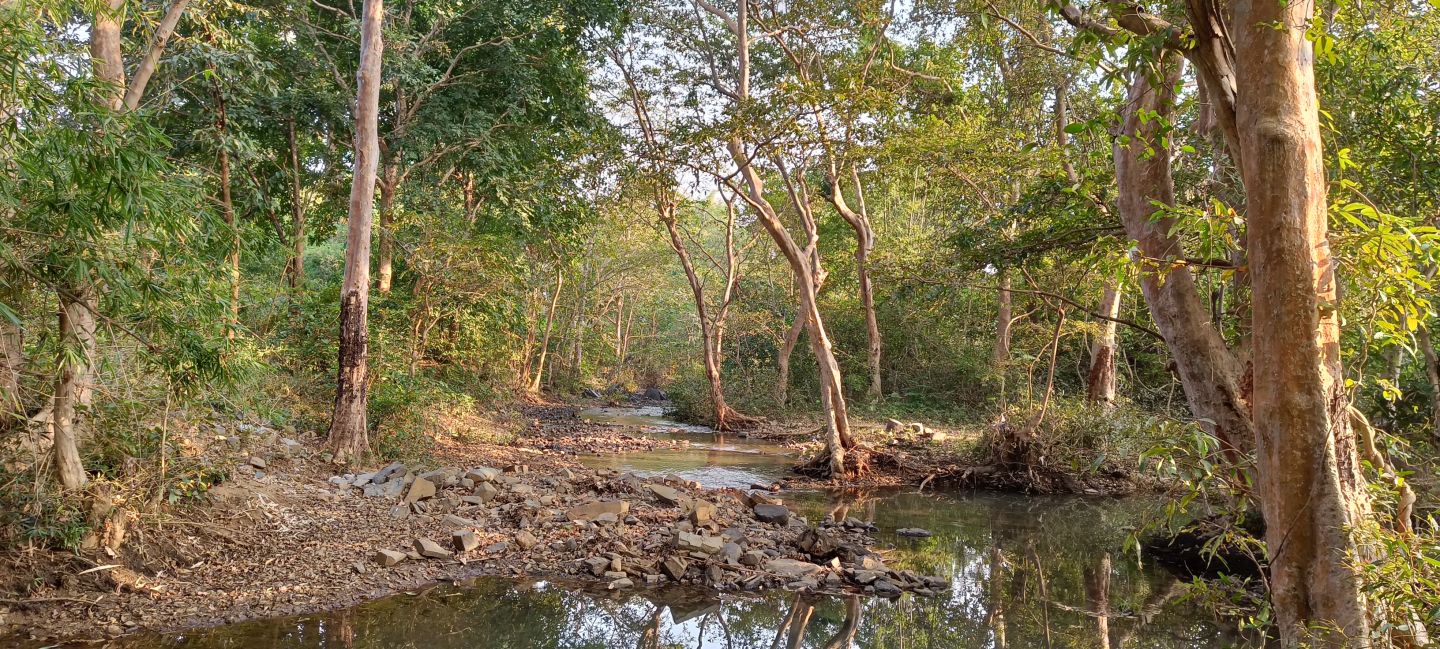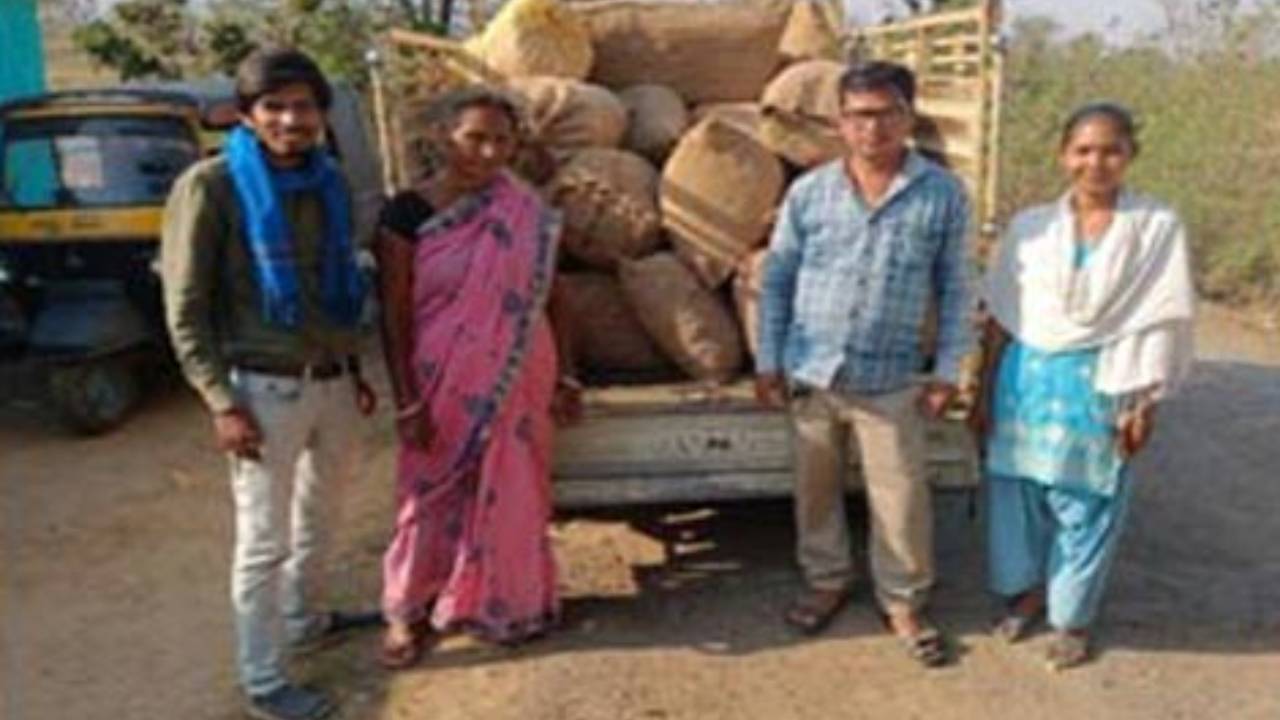Resilience; in the face of adversity
by -Dileep Kumar and Thriti Das
Chakradharpur, Jharkhand
- Home
- Stories From The Ground
- Resilience; in the face of adversityResilience; in the face of adversity by -Dileep Kumar and Thriti Das, Chakradharpur, Jharkhand

In the nature’s lap
In the heart of India, nestled in the Kolhan region of Jharkhand, lies a land brimming with natural wonders. It’s a land where the Sal forests of the Chota Nagpur plateau dance in harmony with the moist deciduous forests of the Damodar Valley. Here, amidst this lush green landscape, nature has woven a masterpiece of biodiversity. The Kolhan region is home to over 1,000 species of plants, including many rare and endangered varieties, covering an expanse of approximately 15,000 square kilometers, which amounts to a staggering 60% of the region’s total land area.
Yet, beneath this seemingly idyllic view, a different story unfolds—a story of resilient tribal people from Ho, Munda and Santhal communities living on the forest fringes, their lives intricately woven with the Non-Timber Forest Products (NTFPs) that the forests provide. For generations, these communities have depended on the forest for their lives and livelihoods by collecting NTFPs, ranging from tamarind to mahua flowers.
The struggle with miscreants
In the midst of this symbiotic relationship between nature and its people lies a thorn—a pervasive issue that has plagued these communities for years – the exploitative nature of the market-intermediaries. They engage in practices like improper weighing, leading to underpayment, and manipulating prices to the detriment of the very people who toil to bring these treasures to market.
“Ekdin hum market me dekhe ki ek budhe dada apni imli bechne market aaye the aur vyapari ne bina wajan kiye hi unka imli dher me daal diye aur bola ki 15 kilo hoga usdin hmko bahut bura laga tha ki wo dada itne mehnat se imli lekar aaye honge aur unke sath aisa hua, us din se hmne socha ki hum FPO ke madhyam se bech ke ye sab samasyaon ka hal kr skte hain”(One day, I saw an aged man bring his tamarind to the market. The vendor, without checking the weight, put it in his bag and claimed that it was 15 kgs. I felt bad; how hard he must have worked to bring tamarind here, that day I decided to solve all these problems via the FPO) says a determined Kiran Gagrai, a Community Resource Person (CRP) from Bandgaon block in West Singhbhum district of Jharkhand, reminiscing the days of struggle.
Just like that man in the markets of Chakradharpur, Saraikela and Chaibasa, this is a story of countless other men and women, irrespective of age, sex, being duped by the market- intermediaries in the region.

Woman assorting through
her Tamarind production
START: the solution
Amidst this situation, PRADAN visited the region of Jharkhand, under the START (Stimulating Tribal and Rural Development) project supported by RBL Bank Ltd. The malpractices of the market-intermediaries and their negative impact on the producers was listened to. It was realised that the lack of markets nearby (closest one was 15-20 kms far from their villages!), and poor prices for the products are leading to poverty, food insecurity, and social unrest in the region.
After rounds of discussions with the villagers, and convincing them that the team isn’t another entity sent to cheat them, 12 villagers like Kiran Gagrai agreed to get trained to become Community Resource Persons. Their role included Mobilization of farmers, Procurement, weighing and packaging of material. Also, an FPO named ElangDolang FPO (Farmer Producer Organisation) was established under the Central Sectoral Scheme in 2021.
One of the pivotal steps taken by ElangDolang FPO was the formation of a 64 Producer Groups (PGs), a collective effort to bring transparency and organization into the NTFP trade. By pooling financial resources and knowledge, these PGs aimed to empower their members and provide them with a fair platform to market their products.
To mitigate the challenges faced by the villages B2B (Business to Business) linkage was provided to the people. The CRPs trained by PRADAN further supported the villages by providing good quality inputs (like seeds) to the villagers at their doorstep. Awareness became the first tool in the arsenal of change. ElangDolang FPO along with the CRPs
conducted awareness drives across the forest-fringe villages. Through these initiatives, they educated producers about the malpractices that had been bleeding them dry and the hidden expenses incurred due to distant markets.
“Hum ekdin ghar se vajan krke 40kg imli le gye the market me, pta nhi kahan se 5 kg sukh gya raste me hi (Sarcastically), vyapari ke yaha le gye to waha 35kg hi nikla” (One day, I took 40 kgs of Tamarind with the to the market, I don’t know how 5 kgs of them dried up in the way (sarcastically); at the vendors place, the total weight of the tamarind was only 35 kgs) – Mangara Munda, Chingida village, in one of the awareness drives helping everybody under the depth of the challenge.
Tamarind: A source of hope
Since the villagers were already used to the cultivation and marketing of Tamarind, ElangDolang FPO conducted extensive market studies on the same and helped farmers cultivate as well as sell the crop with improved techniques.
The results were nothing short of remarkable. In a season that spanned 1.5 months (Mid March to April), 36 farmers from Sonua and Bandgaon block, mobilized by the FPO, sold 5.44 metric tons of tamarind produce to the FPO. The FPO purchased the tamarind at Rs. 18 per kilogram and Rs. 19 per kilogram, ensuring a decent profit for the farmers. In addition, 1.97 metric tonnes of tamarind were sold at Sonua Market, and the rest, 5.2 metric tonnes, found its way to Ranchi market, both fetching competitive rates.

The figures paint a promising picture. The FPO achieved a total turnover of Rs. 1.46 lakh through this output marketing process, with a net profit of Rs. 7,365. This marked a net profit of 5.04%, with farmers earning an average of Rs. 2,720, earlier the average earning was around 1800 excluding transportation charges. These numbers are not just financial gains; they symbolize empowerment, independence, and a brighter future.
Women- the change agent
One of the most groundbreaking aspects of this transformation is the inclusion of women in a predominantly male-dominated market. ElangDolang FPO broke barriers by promoting women CRPs as agents and vendors for collecting and marketing NTFPs.
“Pehle toh hum log sirf ghar tak seemit the. Market jana, imli bech kar aana mahilao ke lie mumkin nai tha, par ab hum puri tarah shamil hain. Gaon ho ya bazaar, hum sab jagah ja kar, sabki madad krte hain” (Earlier we were confined to our house. We didn’t used to go to the, it was male dominated but now we are completely involved in the business. Be it helping people in the village or the market, we are there for everyone) says a happy Kiran Gagrai.
The project and the FPO has not only helped with profits but also provided a sense of identity for these women.
What happens next?
As this transformative journey continues, and the farmers get inspired by their success with tamarind, they further plan to expand their efforts to market other NTFP products through the FPO. Moreover, they are exploring avenues to establish micro-enterprises like – tamarind and chironji processing for value addition, enhancing their income and further strengthening their bond with the forest.

In the Kolhan region of Jharkhand, a story of resilience and change is unfolding. It’s a story of a community rediscovering its voice, embracing fair trade practices, and building their life. As the sun sets over the luscious forest, the future looks brighter than ever for the tribal communities, as they chart a course towards prosperity and sustainability, hand in hand.

Landscape of Kolhan region


